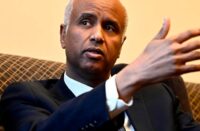The City of Winnipeg has proposed a near six per cent increase in property taxes in its preliminary 2025 budget, sparking criticism since its revelation last week. However, Mayor Scott Gillingham assured that the estimated increase of around $10 a month for the average homeowner would still make Winnipeg the city with the lowest property taxes among major Canadian cities.
The tax hike, according to city officials, is currently planned only for 2025, with the expected increases to reduce to 3.5 per cent for 2026 and 2027, following the previous multi-year plan. A standard household, valued at $371,000 in 2025, would experience a property tax increase of $121, city officials explained.
The budget also plans for considerable investments in public safety and road works, which Mayor Gillingham stated were a direct response to the priorities expressed by Winnipeg residents through surveys and feedback. With a population increase of 65,000 in the last three years, the mayor noted the strain on city services and emphasized the need for additional revenue.
The budget allocates funds for 36 new police officers over two years and 15 new community safety officers for Winnipeg Transit. An extra $1 million is allocated for youth recreation programming for high-need neighbourhoods and for the removal of hazardous debris from city parks.
Coun. Jeff Browaty, Winnipeg’s finance chair, stated that this budget reflects the needs and priorities of the city’s residents and provides first responders with the necessary tools to protect the city.
The budget also earmarks $1 billion for street renewal over the next six years, with $169.3 million planned for 2025. Winnipeg Transit will also get a boost to its operating subsidy, with a record $124 million set aside for the city’s transit makeover next year.
The budget update is set to be finalized in about six weeks, with the final approval and adoption expected on January 29, 2025. However, the Canadian Taxpayers Federation (CTF) has called for spending cuts instead of a property tax increase. The CTF highlighted that the salaries of the city’s mayor and council are higher than those of their provincial counterparts.





